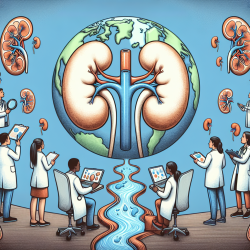Introduction
Osteogenesis Imperfecta (OI) is a rare genetic disorder characterized by fragile bones and a range of other symptoms that can significantly impact the quality of life for affected individuals and their families. A recent systematic scoping review titled "The patient clinical journey and socioeconomic impact of osteogenesis imperfecta: a systematic scoping review" provides a comprehensive overview of the existing literature on OI, highlighting the clinical, humanistic, and economic impacts of the condition.
Key Findings from the Review
The review analyzed 271 records from 245 unique studies, revealing several critical insights:
- Clinical Insights: The majority of studies focused on the clinical aspects of OI, such as bone conditions, diagnostic techniques, and pharmacotherapy. However, there is a notable gap in data concerning current care practices, interactions with healthcare systems, and the transition of care across life stages.
- Humanistic Impact: The review highlighted the significant impact of OI on health-related quality of life (HRQoL), particularly in areas beyond bone health. There is a lack of comprehensive data on how OI affects adult men and family members, including non-affected siblings.
- Economic Impact: Only a few studies addressed the socioeconomic impact of OI, indicating a need for more research to understand the financial burden on patients, caregivers, and healthcare systems.
Implications for Practitioners
For practitioners working with children with OI, these findings emphasize the importance of a holistic approach to care. Here are some actionable steps based on the review:
- Expand Focus Beyond Bone Health: Practitioners should consider the broader health concerns associated with OI, such as cardiovascular, pulmonary, and neurological conditions, which can significantly impact HRQoL.
- Enhance Multidisciplinary Care: Given the complexity of OI, a multidisciplinary approach involving specialists in various fields, including speech-language pathology, can help address the diverse needs of patients and improve outcomes.
- Research and Data Collection: Practitioners are encouraged to contribute to research efforts by collecting data on the socioeconomic impacts of OI, which can inform policy and funding decisions to better support affected families.
Encouraging Further Research
The review underscores the need for further research to fill the existing gaps in understanding the full impact of OI. Practitioners can play a crucial role by participating in studies, advocating for comprehensive data collection, and collaborating with researchers to explore new therapeutic approaches and interventions.
Conclusion
By integrating the insights from this systematic scoping review into clinical practice, practitioners can enhance the quality of care for individuals with OI and their families. Continued research and a commitment to data-driven decision-making will be vital in addressing the challenges posed by this complex condition.
To read the original research paper, please follow this link: The patient clinical journey and socioeconomic impact of osteogenesis imperfecta: a systematic scoping review.










